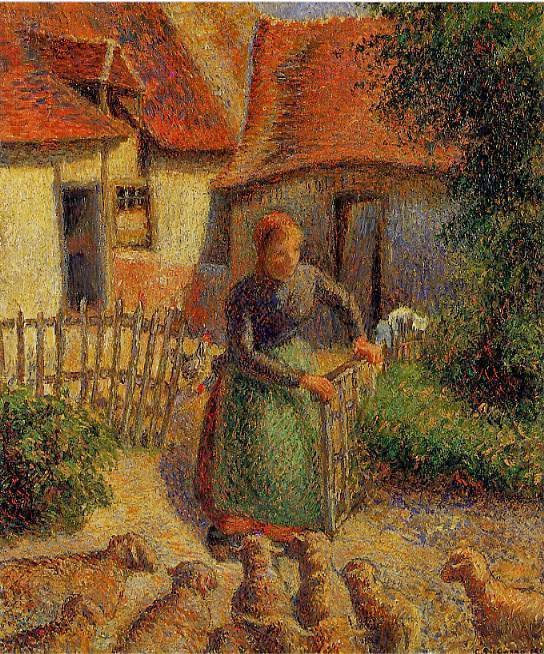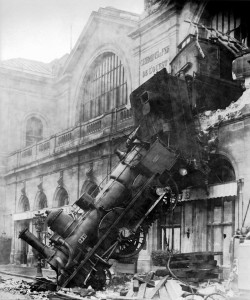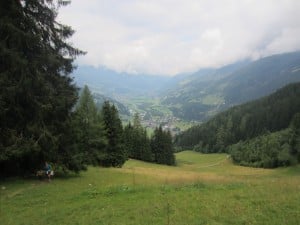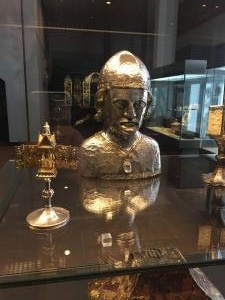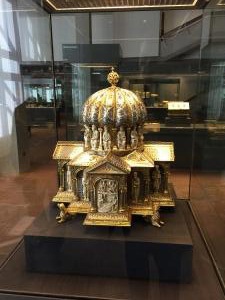Germany has apparently decided to postpone its ill-conceived plans to exhibit the hundreds of works of art that it still holds from the trove seized from the late Cornelius Gurlitt. This decision was announced as a date was set to hear the latest stage of the challenge brought by Gurlitt’s cousin Uta Werner to the will that Gurlitt wrote in the last weeks of his life, leaving the entire collection to the Kunstmuseum Bern. As the Gurlitt fiasco trudges through its fourth year, this move is emblematic of the too little too late approach that has characterized the entire affair.
Potemkin Village Deferred—Planned Exhibition of Gurlitt Trove is Postponed
Topics: Schwabinger Kunstfund, Nazi-looted art, Gurlitt, Restitution, World War II, Task Force, Kunstmuseum Bern, Monika Grütters, Raubkunst
HEAR Act Introduced by Sen. Ted Cruz to Create Federal Standard for Holocaust Art Claims
Among the many challenges that litigants over Nazi-looted art face in the United States is a lack of uniformity. Statutes of limitations vary from jurisdiction to jurisdiction, and interpretations of jurisdictional laws like the Foreign Sovereign Immunities Act differ from one Court of Appeals to another. This is particularly challenging in the context of the Washington Conference on Nazi Looted Art of 1998 because private disputes are where the issue has meaning in the United States. There is no national commission to address potentially looted art in public possession like those in Austria, Germany, or the Netherlands (however well or poorly some of those commissions perform) because there is very little art in national ownership about which the federal government has any power to decide. Thus, in assessing U.S. compliance with the Washington Principles, it is often left to private litigants to argue about what the Principles mean in individual disputes. Happily, appellate courts have begun to reject consistently the denialist defenses of foreign countries that wish to keep stolen art just because they say so, holding that the Washington Principles support the ability of heirs to pursue claims. Yet the uneven landscape is still daunting.
A new bill introduced this week would address that, though its chances of passage into law in a contentious election season are hard to be optimistic about.
Topics: Legislation, Nazi-looted art, Restitution, World War II, Charles Schumer, John Cornyn, Holocaust Expropriated Art Recovery Act, Richard Blumenthal, HEAR Act, Ted Cruz
Herzog Heirs’ Claims Against Hungary Survive Dismissal Under FSIA
Expropriation Exception Saves Case, But District Court Holds Commercial Activity Exception Does Not Apply, Claims to Two of the Paintings at Issue are Dismissed as Well
The ongoing litigation between the heirs of Baron Mor Lipot Herzog and several state owned Hungarian museums has produced a new decision interpreting the scope of the Foreign Sovereign Immunities Act (FSIA), a frequent tool used to seek jurisdiction over Nazi-looted art claims brought in U.S. federal court. Relying on Supreme Court and D.C. Circuit cases in the last few months, the U.S. District Court held that claims for all but two of the paintings at issue can proceed under the FSIA’s “expropriation exception” codified in 28 U.S.C. § 1605(a)(3), but that the FSIA’s “commercial activity exception”—which the D.C. Circuit had held applicable in 2013 to the same case—could not be invoked based on the facts in the record developed in discovery. De Csepel v. Republic of Hungary, 2016 U.S. Dist. LEXIS 32111 (March 14, 2016).
Topics: David de Csepel, commercial activity exception, Hungary, Foreign Sovereign Immunities Act, Budapest University of Technology and Economics, Hungarian National Gallery, Budapest Museum of Fine Arts, expropriation exception”, Restitution, World War II
Germany Relents on Nazi-Looted Art Advisory Commission Jewish Membership
Barely a week ago German Minister of Culture Monika Grütters was dismissively rejecting any changes to the Advisory Commission that issues recommendations on claims of Nazi-looted art in German museums. Today, in a classic Friday afternoon news dump, Germany caved to a drumbeat of pressure to include Jewish members of the Commission, pressure that began right here and continued with the support of colleagues and friends around the world. The lesson? No voice is too small to make a difference.
Topics: Germany, Nazi-looted art, Restitution, World War II, Monika Grütters, Raubkunst, Limbach Commission
Time to Go—Flechtheim Heirs Withdraw from Limbach Commission That Has Outlived its Usefulness
Two days after suspending their participation in the Advisory Commission on the return of cultural property seized as a result of Nazi persecution, especially Jewish property, often called the "Limbach Commission" after its presiding member Jutta Limbach (the Beratende Kommission im Zusammenhang mit der Rückgabe NS-verfolgungsbedingt entzogenen Kulturguts, insbesondere aus jüdischem Besitz), the heirs of Alfred Flechtheim withdrew from the proceedings entirely. The dispute concerns Violon et encrier (Violin and Inkwell) (1913) by Juan Gris in the Stiftung Kunstsammlung Nordrhein-Westfalen (Art Collections Foundation of North Rhine-Westphalia) in Düsseldorf.
Topics: Alfred Flechtheim, Nazi-looted art, Advisory Commission, Beratende Kommission, Restitution, Düsseldorf, World War II, Limbach Commission, Dr. Michael Hulton, Juan Gris
Léone Meyer and University of Oklahoma Settle Nazi-looted Pissarro Dispute
In December it was announced that the University of Oklahoma and Leone Meyer had reached a tentative settlement in the litigation over Meyer’s claims to La Begère by Camille Pissarro, a painting stolen from her father Raoul during the Vichy regime. Yesterday the final agreement was made public. As reported by Graham Bowley at the New York Times, title to the painting will reportedly be confirmed as Meyer’s, and the work will be displayed on a rotating basis in France (where Meyer lives) and the Fred Jones, Jr. Museum of Art (where it has been) until such time as Meyer donates it to a French museum (either during life or in her will). It is a remarkable development in a case that the Oklahoma defendants defended vigorously, and a credit to the participants and lawyers involved on both sides that they were able to bridge the gap and reach an agreement.
Topics: Léone Meyer’s, University of Oklahoma, Fred Jones Jr. Museum of Art, Restitution, World War II, Camille Pissarro
Back in September, we voiced curious skepticism about breathless reports of a buried train near Wrocław, formerly Breslau, in Poland. Rumors of this “Nazi gold train” supposedly concealed at the end of World War II and filled with either gold, art, or both, had an odd mixture of plausibility and absurdity. Yet Polish officials went on record confirming…something. On August 28, 2015, Deputy Culture Minister Piotr Zuchowski stated at a press conference that he is “99 percent sure” that the government had located the train allegedly loaded with gold, gems, and perhaps artwork that was buried as the Soviet Red Army encircled Breslau in the last months of World War II. “The train is 100 meters long and is protected,” Zuchowski said.
Topics: Soviet, Breslau, Wrocław, Piotr Koper, Red Army, Nazi Gold Train, Walbrzych, Deputy Culture Minister Piotr Zuchowski, World War II, Poland, Washington Post, Janusz Madej, Andreas Richter, New York Times
Gurlitt Task Force Issues Fifth Recommendation for Restitution
Sophisticated Analysis of Adolph von Menzel Drawing Distinguishes Itself from Recent Revisionism Elsewhere
As the original term of the Gurlitt Task Force (Taskforce Schwabinger Kunstfund) winds down, the panel has issued a report on a work that it deems appropriate for restitution: Interior of a Gothic Church (Inneres einer gottischen Kirche) by Adolph von Menzel (pencil drawing, signed/dated 1874). The drawing has been called Church in Hofgastein in some English language articles.
Topics: Interior of a Gothic Church, Hildebrand Gurlitt, Cornelius Gurlitt, Nazi Germany, Inneres einer gottischen Kirche, Dresden, Gurlitt Task Force, Adolph von Menzel, Nazi-looted art, Gurlitt Collection, Ernst Julius Wolffson, Washington Principles on Nazi-Looted Art, Advisory Commission, Munich, Albert Martin Wolffson, Salzburg, Restitution, Catrin Lorch, Bavaria, World War II, Switzerland, Süddeutsche Zeitung, Austria, Kunstmuseum Bern, Federal Republic of Germany, Raubkunst, Taskforce Schwabinger Kunstfund, Elsa Helene Cohen, Limbach Commission, Jörg Häntzschel
Widespread Criticism Continues from Historians Over Germany’s and SPK’s Revisionism Concerning Holocaust and Forced Sales of Art
We reported last week on the outrage over the decision by Germany and the Stiftung Preussischer Kulturbesitz (SPK) to argue in their motion to dismiss my clients’ claims to the Welfenschatz that a commercial interaction between German Jews and a cabal instigated by Hermann Goering in 1935 “predated the Holocaust by several years.” As we noted last week, the suggestion that the Holocaust was a distant possibility in 1935 was an indefensible statement, factually, historically, and ethically. The initial reaction was swift and severe. As Germany gets ready to host the First Conference of the German Centre for Cultural Property Losses next week, its policies are hurtling in the wrong direction.
Topics: Jewish Week Mel Urbach, Hermann Goering First Conference of the German Cen, Gesetz zur Wiederherstellung des Berufsbeamtentums, Henning Kahmann, Atlanta, Simon Wiesenthal Center, Varda Neumann Federal Administrative Court, Yale University, Marion Kaplan, New York University, Germany, Nazi-looted art, Hitler, Kristallnacht Rabbi Abraham Cooper, Deborah Lipstadt, U.S. Holocaust Memorial Museum, Markus Stoetzel, Emory University, Behrens, Holocaust, Bloodlands, SPK, Advisory Commission, Black Earth: The Holocaust as History and Warning, Stiftung Preussischer Kulturbesitz, Restitution, Los Angeles, World War II, Law for the Restoration of the Professional Civil, Washington, Raubkunst, Timothy Snyder, Welfenschatz
Holocaust Revisionism in German Motion to Dismiss Guelph Claim Elicits Condemnation
Germany Runs Counter to 20 Years of International Commitments
As readers know, my clients Alan Philipp and Gerald Stiebel sued the Federal Republic of Germany and the Stiftung Preussischer Kulturbesitz (SPK) in February for restitution of the Guelph Treasure (or Welfenschatz as it is known in Germany), assisted by my co-counsel Mel Urbach, Esq. and Markus Stötzel of Marburg, Germany. As my co-counsel speak to an event tonight hosted by Congresswoman Grace Meng on the anniversary of Kristallnacht, an event inextricable to the persecution of Jews in Europe, Germany’s response to the Complaint advances a stunning revisionism about the Holocaust and the international commitments that Germany has made. While paying lip service to the seriousness of Jewish suffering, the papers filed in court are nothing less than an attempt to move the goalposts to exempt a historical period from responsibility about which there can be no serious debate. Independent condemnation was not far behind the filing.
Topics: Grace Meng, Simon Wiesenthal Center, Shoah, Adolph von Menzel, Hans Sachs, Washington Principles on Nazi-Looted Art, 1943 London Inter-Allied Declaration, Dachau, Holocaust, Mel Urbach, SPK, George Eduard Behrens, Nuremberg race laws, Holocaust revisionism, Stiftung Preussischer Kulturbesitz, Marburg, Restitution, Los Angeles, Gerald Stiebel, World War II, Markus Stötzel, Saemy Rosenberg, Deutsches Historisches Museum, Reichskristallnacht, Isaac Rosenbaum, Lucie Ruth Hackenbroch, Federal Republic of Germany, Zacharias Hackenbroch, Pariser Wochentag, Rabbi Abraham Cooper, Paris Weekday, Alan Philipp, Welfenschatz, Military Government Law 59, Frankfurt


